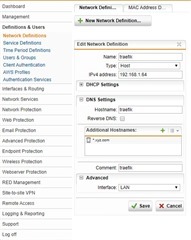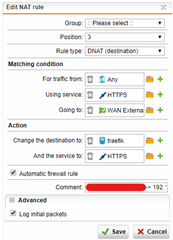Hi,
I was trying to define wildcards in additional hostnames something like *.xyz.de so when a user enteres anything related to this host he will be redirected to the host. I researched and only found old posts about feature requests but no definite answer if it is implemented or not or will be available in the future?
I have utm 9.
This thread was automatically locked due to age.




